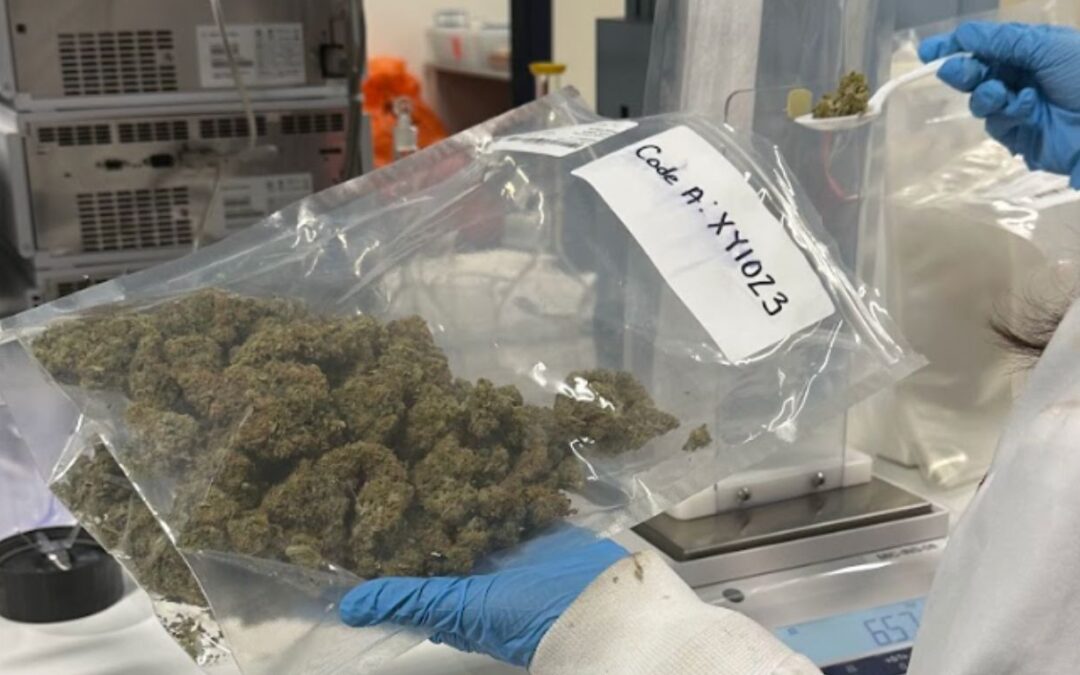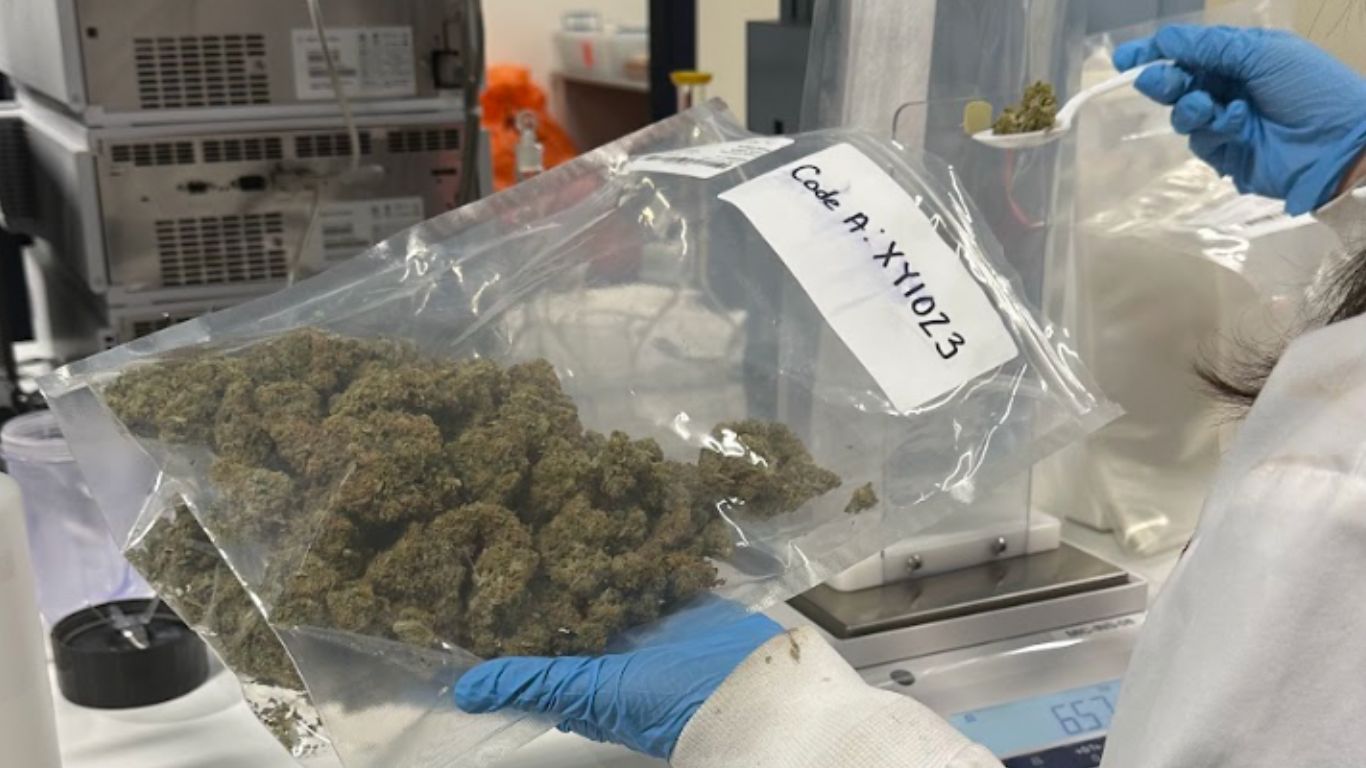
by Grow Up Conference | Dec 11, 2024 | Media Partners, The New Agora
A Few Bananas Short of a Bunch
By
Cognitive Dissonance
“You’ve been living in a dream world, Neo.” – Morpheus
“How did you go (morally) bankrupt?” Two ways. Gradually, then suddenly.” ― With abject apologies to Ernest Hemingway and his “The Sun Also Rises”
“I reject your reality and substitute my own.” – Adam Savage from Mythbusters
I have this short-on-specifics, long-on-emotion memory of being young, around 9 or 10 years old, and in grade school during the mid 60’s. I was an introvert and thirsty for any knowledge that could help me better understand what to me was nothing less than insanity.
Even back then I instinctively knew the secret, though no one in their ‘right’ mind believed me when I voiced my concern. I was living in an insane asylum, populated by humans reasonably well adapted to close quarters and authoritarian rule. At least that’s the way it was in my house and just about every other home within walking distance.
Of course, the grand global collective, as diverse and culturally mixed as it claimed to be, pretty much followed similar directives. It did then, and in fact still does today. While it may be carefully concealed behind grand consensual governing concepts such as parliamentary rule, democracy or a representative republic, they couldn’t fool me. Whether by closed fist or pointed gun, it was pretty obvious to me the authoritarian few always ruled over the collective many.
I gravitated towards history (which at the time I believed was factual) and dove straight into the deep end head first. The good news was I wasn’t fully and properly indoctrinated yet, so there was a chance my young mind would survive somewhat intact now that some self-awareness was beginning to peek through.
The bad news was I had no effective way to filter out the propaganda, lies and distortions. One simply cannot fully discern truth without recognizing the lie for what it is and vice versa. It’s the contrast between the two that fully illuminates both.
A child’s mind has no more effective defense against deliberate and focused indoctrination than a child’s body has against a vicious rip tide. Both require treading water until either a path to shore materializes or exhaustion ends the struggle. Fully formed adults rarely possess the courage and perseverance to buck the trend and push back against the herd. What chance does a child have with far less experience and cognitive tools to work with?
Because my self-directed course of study was coloring way too far outside the lines to discuss openly and honestly with family or teachers, out of necessity I was a study group of one, the only one I could trust. Youthful innocence and naivete are both wonderful cognitive shields and deadly ankle weights. Without a buddy system for mutual support, it’s clear I wasn’t going to tread water for long.
I lived in a small southern New England town about halfway between the New York Yankees and the Boston Patriots, as they were then known. Roman Catholic theology was the general rule of the land, a time when the Lord’s word had equal or more weight than the ruling central government in DC. Or at least that’s what I was taught. It wasn’t just government mandated conditioning that was infiltrating my mind.
In my world history class, we were studying World War Two in general and Germany, Italy and Japan in particular, the so-called bad guys of that era. Let’s just say the text was not sympathetic to the other team and leave it at that. Any enemy of the Empire, vanquished and not yet vanquished, was presented to me as obviously a personal enemy of mine. The same ideological conditioning was used with presently favored friends of the Imperial Ideology. A friend of the Empire was most certainly a friend of mine.
While I mounted a mostly feeble and ineffective resistance to the rote training, exactly what portion of the firehose conditioning discharge do I not swallow? How do I not swallow? Resistance is, and was, futile without significant and continuous outside assistance, a crucial element I sadly lacked. My capitulation was not that far off.
As part of my personal exploration, I had already borrowed Hitler’s ‘Mein Kampf’ from the library (to this day I wonder why it was even in the elementary school library to begin with) and was ready to ask a few obvious-to-me questions.
That did not go over very well. Not well at all, in fact.
Until recently, there’s been one question about that period of time (the late 30’s, not the mid 60’s) that I never found a satisfactory answer for. How could all those people, average everyday people, not see how nonsensical and even insane things were becoming? From a big picture point of view, it was achingly obvious the planet had gone completely nuts and was headed towards self-immolation. The Planet of the Apes was quickly spiraling out of control.
I speak of all competing factions in that soon-to-be brutal and bloody conflict, including ‘We the People’. Notice how I didn’t conflate the US government with average Jane and Joe. The government, any government, is ultimately a fictitious entity supported, willingly or not, by the people. Jane and Joe, along with you and me, are ‘the people’.
Anything done in our name implies some, even minimal, personal responsibility. While I may not be personally bombing various other civilizations back into the stone age, washing my hands of any personal responsibility is a deliberately conditioned-from-birth reflex that enables the Empire to continue with its cold-blooded murder while I reap some of the benefits of being a citizen of the Imperium.
Expert behavioral conditioning is not only designed to be easily swallowed, but any contrary information must be immediately vomited up, spat upon and thoroughly rejected. Experiencing a cognitive dissonance can be emotionally disturbing and quite unsettling, compelling most people to do just about anything to make the pain go away. Triggering, combined with righteous indignation, usually fits the bill.
So why did we the people, both back during the late 1930’s as well as over the last 10 to 15 years, not see or do anything about the abject insanity quickly rising amongst themselves?
The answer, of course, is that we live in an insane asylum. Which by extension, means we are all verifiably insane. Assuming, of course, we could actually find a non-human expert (because how does an insane human correctly identify sanity) to conduct a study (government funded, of course) that would verify the inevitable findings as true and proper.
As previously noted, the issue back then was I had not yet been fully indoctrinated into the funny farm; therefore, I still retained some capacity to think clearly without the burden of full conditioning. This branded me as a deviant first class, a non-conforming irritant who refused to fully cooperate with the conditioning regime.
On a near weekly basis, I was a carrier pigeon for notes sent back home from indignant propagandists complaining to my keepers about my lack of servile prostration. I wasn’t ‘bad’ per se, just non-compliant. I asked awkward questions about delicate subjects polite society had decided weren’t discussed out in the open in our out-loud voice…and most certainly not from the mouth of babes.
I was the square peg who resisted conforming to the round holes everyone else insisted was true, correct and ‘normal’. While at the time I could not adequately explain what was wrong with ‘normal’, like former United States Supreme Court Justice Potter and pornography, I knew abnormal when I saw it. And it was everywhere.
Oh sure, by that age I definitely wore the burgeoning tramp stamp of Empire, enough at least to navigate and assimilate to some degree among the other inmates. But I still retained some unconstrained curiosity and desire to question fundamental assumptions and precepts. There were still a few more years before high school, where the final ‘sentient’ forming and molding would take place.
I failed to discover the answer to my question (essentially why were so many unaware of their own insanity) because I failed to understand the premise of my own question, completely understandable since I was already on the fast track to Imperial insanity. The final ingredient to the secret sauce is context and empathy, both directly derived from actual lived experience.
An understanding of my innate inner knowing was much more limited back then, mostly because I had begun to embrace the collective insanity as true and proper if for no other reason than to survive childhood in relative peace. Not only was my intellectual database small back then, but it was unregulated by experience in the form of empathy and perspective.
That’s what an education is supposed to instill in us; empathy and perspective. Primarily because the young lack direct lived experience, a proper education is supposed to partially fill that vacuum. At least that’s the theory anyway. In practice, our birth ignorance is viciously and ruthlessly exploited by those who cannot be questioned or named in order to create obedient cognitive cogs and compliant cannon fodder.
Just because the person administering the medicine might be pleasant and helpful doesn’t mean the medicine isn’t poison in disguise. Anyone who’s undergone chemotherapy and survived understands that concept all too well.
The bottom line is any Empire, any culture, any collective will create a shared reality by first creating narrative. And the primary directive of any narrative is to be self-affirming, at least to those within its embrace. Amateurs create narrative and shove it down our throats. Experts create narrative so compelling, interlocked and seemingly self-supporting, that we not only embrace it but ask for more.
Hence my interest in reading about how Hitler’s handlers massaged the people’s narrative. I wanted to know what they were told that compelled them to reject the obvious in favor of the insane. The thing about information warfare, aka propaganda, is the really good stuff, while walking, talking and acting like obvious propaganda to an outsider, is accepted as pretty much the truth (more or less) by the target.
My truth, that is. Your truth has a slightly different ingredient list and cooking instructions because both you and I ‘believe’ most, if not all, of our worldview is originally conceived. We ‘believe’ we are masters of our own unique universe and therefore act accordingly, meaning shockingly oblivious to any and all outside manipulation. Most importantly, it enables us to remain more or less in lockstep with other properly conditioned ideologues within our select group.
From the perspective of properly conditioned people, the only question that really counts is whether others are part of our ideological tribe or not. Either my cognitive gear set properly meshes with yours or it does not. When resources are plentiful, we collectively and individually can afford to be tolerant of deviants. When not, we are not. Guess which direction we’re headed these days.
In our current form and within the present collective reality, we are fully and properly conditioned to live in someone else’s reality. We no longer know how to create our own because our capacity to imagine, let alone perceive or manifest an alternative reality construct, is both mostly missing and actively suppressed.
Dangerously deviant thought will not be tolerated in any way, shape or form. Because reality flows from thought and belief (and not the other way around) deviant thought must be suppressed at all costs in order for an alternative consensus realty to be reliably groomed and directed.
Anything non-natural (meaning created by man’s hand) must first originate as an abstract thought and concept. Only then can it be fashioned by, and occasionally from, sinew and bone. I suspect I could even make a credible argument that all reality, natural or not, is a creation of man’s essential inner knowing and power.
I am reminded of Roger Banister, the first to run the four-minute mile. Once others realized the perceived impossibility of running a sub four-minute mile was actually quite possible, the extraordinary became ordinary and a new minimum standard was set. Perceived and lived reality is continuously created and altered by small nudges from you and me, the collective, and occasional large pushes by the grand masters.
Our cultural conditioning system goes so much deeper than ‘just’ government schools, social media, instant messaging and the 24/7/365 ‘news’ cycle. It’s composed of deeply embedded beliefs considered fundamental and static, handed down from generation to generation. After hundreds of iterations, and thousands of years of constant social, intellectual, political and religious conditioning, how could the end product be anything other than completely bonkers.
We no longer know what it is to be ‘human’ because there are so few living examples to interrogate, emulate and propagate. We are social creatures and much of our early learning is absorbed thru non-verbal communication often passively received. Suppress or remove a cultures central intellectual and moral influencers, apply stress and disorder, then shake vigorously, and society soon regresses to base instinct and emotion.
Sound familiar? Hell, my two cats are more intelligent, curious, compassionate and civilized than a significant slice of human beings these days.
I know we all wish to believe we broke thru the shell of our egg and progressed to adulthood fully charged, informed and functional. That we are all a product of hard work, self-actuation and perseverance established almost exclusively by our own ‘self’. But this is a self-deception of the highest order, desperately propagated by ourselves and like minded others in order not to upset our foundational conditioning.
In an insane world, structured order and predictability are critical to maintaining order among the unstable. Despite our lunacy, we can still maintain a semblance of internal cognitive order if we are provided plausible deniability we are insane. Introduce instability and the obvious becomes unmistakable. Chaos ensues.
We give far too little credit to our fundamental programming, our wetware BIOS or basic input/output system, which underlies and supports everything from basic human interaction to complex thought processes aka reality creation.
What comes first, the narrative or the fully formed self? In my opinion, the answer is obvious and self-evident. Humans are born into a mature collective narrative and are conditioned to conform and comply. To think there is no effect at all on us, or worse just a small influence, is to play directly into the hands of the master manipulators.
This all reminds me of a joke some people know to be true for others, but not for themselves, proving without a doubt how deeply immersed we are within the all-encompassing mind meme. It goes something like this.
Old man minnow crosses paths with two young self-absorbed minnows and booms a friendly greeting. “Good morning lads. The water is absolutely gorgeous today.”
The two youngsters, cocksure and full of themselves, ignore the old man as they pass, then hurl insults at his back. Once a decent interval has passed and the old man is no longer within ear shot, the younger minnow turns to his friend and asks “What’s water”?
Indeed, “what’s water” is the fundamental exploration we should all be pursuing. Until we not only ask the question, but thoroughly examine it for all its nuances and undertones, we remain just a few bananas short of a bunch. There’s no time to waste my friend. Bananas have a shockingly short shelf life, as do we mere humans.
by Cognitive Dissonance

by Grow Up Conference | Dec 11, 2024 | Cannabis News Wire, Media Partners
A recent study published in the journal Molecular Psychiatry has explored how marijuana use might influence the epigenome in the human body. The epigenome, often described as a system of switches, regulates how genes are activated or deactivated, shaping bodily functions.
According to Lifang Hou, a Northwestern University epidemiologist, the study identified a connection between multiple epigenetic markers and long-term cannabis use.
The researchers examined more than 1000 participants who had been involved in an earlier long-term study, which included surveys about their marijuana use spanning two decades. Participants who were between 18 and 30 years old at the study’s outset provided blood samples during two specific intervals—15 years and 20 years into the study.
These samples allowed the researchers to analyze changes in DNA methylation, an epigenetic mechanism where methyl groups are added or removed from DNA. While this modification does not alter the DNA sequence, it can influence gene activity by affecting how easily cells can interpret genetic instructions.
Lifestyle and environmental factors, including marijuana use, can induce such methylation alterations, which can have far-reaching implications, including potential transmission to future generations. Blood samples provide a snapshot of both recent and historical exposures to such factors, making them a valuable tool for this kind of research.
The study revealed associations between cannabis use and numerous epigenetic markers. For instance, in blood samples collected at the 15-year mark, 22 markers were linked to recent marijuana use, while 31 were linked to long-term use. By the 20-year point, researchers identified 132 markers tied to recent cannabis use and 16 linked to long-term use.
Interestingly, one of these markers had previously been associated with tobacco use, suggesting a potential overlap in how the body regulates epigenetic responses to both substances.
Hou and her team noted that some of the epigenetic changes identified have been connected to processes such as cellular growth, hormone signaling, immune responses, substance use disorders, and neurological conditions like bipolar disorder and schizophrenia. However, the study does not establish a direct causal relationship between marijuana use and these changes or health issues.
The findings offer new insights into how marijuana may influence epigenetic factors, according to Drew Nannini, another epidemiologist involved in the study. He emphasized the need for additional research across diverse populations to confirm these associations. Investigating how marijuana affects age-related health issues could also shed light on its long-term health impacts.
This call for additional research is partly the reason why the broader marijuana industry, including firms like SNDL Inc. (NASDAQ: SNDL), has for long advocated for sweeping regulatory changes at the federal level so that it is easier to study marijuana and enable state-level and federal authorities to tweak marijuana laws based on the available science about the benefits and actual risks of this substance.
About CNW420
CNW420 spotlights the latest developments in the rapidly evolving cannabis industry through the release of an article each business day at 4:20 p.m. Eastern – a tribute to the time synonymous with cannabis culture. The concise, informative content serves as a gateway for investors interested in the legalized cannabis sector and provides updates on how regulatory developments may impact financial markets. If marijuana and the burgeoning industry surrounding it are on your radar, CNW420 is for you! Check back daily to stay up-to-date on the latest milestones in the fast -changing world of cannabis.
To receive SMS alerts from CNW, text CANNABIS to 888-902-4192 (U.S. Mobile Phones Only)
For more information, please visit https://www.CannabisNewsWire.com
Please see full terms of use and disclaimers on the CannabisNewsWire website applicable to all content provided by CNW, wherever published or re-published: https://www.CannabisNewsWire.com/Disclaimer
CannabisNewsWire
Denver, CO
www.CannabisNewsWire.com
303.498.7722 Office
Editor@CannabisNewsWire.com
CannabisNewsWire is powered by IBN

by Grow Up Conference | Dec 11, 2024 | Media Partners, Stratcann
The Federal government’s Bill C-5, passed in 2022, An Act to amend the Criminal Code and the Controlled Drugs and Substances Act, sought to, among other things, keep convictions for simple drug possession “separate and apart” from other convictions.
The bill contained an amendment that gave the government two years to sequester all simple possession records for cannabis and other drugs across the country. This required harmonizing records across multiple jurisdictions, something the federal government has repeatedly highlighted as a challenge. This means those charges would no longer show up on criminal background checks.
There was a November deadline for that process, which the federal government was, unsurprisingly, unable to meet.
Annamaria Enenajor, a criminal defence lawyer and former director of the advocacy group Cannabis Amnesty, told CBC News she isn’t surprised that the “ambitious” deadline was not met, given the challenges of coordinating such a move across the country.
“You can’t just press control-alt-delete and have them all disappear,” she told the CBC.
“The program is very ambitious, given how many levels of government are involved in the collection and preservation of records,” she added.
“There would have to be a coordinated effort on the part of the federal government to work with the provincial government and various law enforcement entities around the country. And I just haven’t seen that happening.”
The amendment sought to address one of the challenges the federal government has faced in clearing people’s records for simple cannabis possession charges.
Five years since the Liberal’s cannabis pardon program was launched, the Parole Board of Canada says only 845 pardons for cannabis possession have been granted.
NDP MP Randall Garrison, who introduced the amendment adopted into the bill to sequester those possession records, has noted in the past that the amount of bureaucracy required to implement such a change is a complicated one that he did not expect the government to be able to meet.
Conservatives, meanwhile, have been calling on the government to reverse Bill C-5 entirely, which they have argued is soft on crime.
While the Liberals passed legislation that allowed for pardons for low-level cannabis charges, the NDP has repeatedly called for further regulatory change that would automatically wipe such records clean.
The process behind such a proposal requires significant logistical changes to Canada’s criminal record-keeping system, although a program that would do just that has been tabled in the Senate several times. The NDP also presented a Primate Members Bill in late 2018, C-415, that would have called for a process where expungement requests were reviewed by the Parole Board of Canada.
While Bill C-93 partially addressed some of the issues for those with cannabis possession charges by removing the $631 fee and a ten-year wait time, it still means many hurdles for those applying, namely the cost of fingerprinting and seeking out those records. This is because of Canada’s archaic, outdated record-keeping method, where there is no single, online database of all criminal charges, meaning many arrest records are kept in courthouses and with police record keepers in the jurisdictions where the charges were originally laid.
This outdated, paper-based system, as well as the nature of how cannabis possession charges are recorded only as generic drug charges, was also part of why C-93 didn’t offer automatic record expungements for cannabis charges.
In October, just a month before the deadline, Public Safety Minister Dominic LeBlanc issued a ministerial directive instructing the RCMP not to disclose simple possession offences when completing background checks “unless otherwise required by law.”
Related Articles

by Grow Up Conference | Dec 11, 2024 | Media Partners, Psychedelic News Wire
Psilocybin is a psychoactive compound that naturally occurs in some species of hallucinogenic mushrooms. When ingested, this compound is converted into psilocin and interacts with serotonin receptors in the brain. This interaction results in altered mood, perception, and cognition and may produce vivid auditory and visual experiences as well as profound spiritual and/or emotional insights.
Now a new study has found that psilocybin may help improve sleep quality and reduce symptoms of depression. This isn’t the first study to investigate the therapeutic effect of psilocybin on mental health conditions either.
Various studies have found that this psychedelic compound has the potential to treat conditions like post-traumatic stress disorder, anxiety, and depression by inducing rapid and lasting improvements in mood after 1 or 2 sessions. This is different from conventional antidepressants, which require long-term use and take time before their effects start to show.
The new study was led by Robin Carhart-Harris and Matthew J. Reid, whose objective was to understand if disturbances in sleep influence psilocybin’s antidepressant effects and if the psychedelic improved sleep quality.
This, they hoped, would inform whether sleep could be used as a new therapeutic target to enhance the effectiveness of pharmacological treatments or replace them. For their study, the investigators recruited over 600 participants who had planned to attend guided psychedelic sessions involving psilocybin like ceremonial experiences or retreats.
Roughly 60% of the participants met the diagnostic criteria for depression, with the investigators finding that almost all of them suffered from sleep disturbances. Insomnia was the most common complaint, followed by awakening early and hypersomnia.
Additionally, sleep issues were the most severe symptom of depression for 26% of the participants. When psilocybin was administered, the investigators found that it decreased symptoms of depression.
In particular, they observed that depressive symptoms had reduced by about 33% just two weeks after the drug was first administered. By the 4-week mark, the symptoms had dropped by more than 50%, with the investigators noting that these improvements were more noticeable in those who had severe depression at the beginning of the study.
Additionally, they examined the relationship between depression and sleep disturbances, finding that those who had serious sleep issues at the beginning were less likely to experience relief from depression, even if some symptoms were alleviated.
Reid explained that this suggested that sleep disturbances could interfere with the therapeutic effects of psilocybin, possibly acting as a barrier to delivering the best outcomes.
The study’s findings were reported in Current Psychiatry Reports. Other researchers involved in the study included Brandon Weiss, Hannes Kettner, and Tessa F. Blanken.
Enterprises like Seelos Therapeutics Inc. (NASDAQ: SEEL) are also engaged in studying psilocybin and other hallucinogens to unearth their therapeutic applications. As their work hits different milestones, we are bound to learn how exactly these substances work to address different mental health conditions.
About PsychedelicNewsWire
PsychedelicNewsWire (“PNW”) is a specialized communications platform with a focus on all aspects of psychedelics and the latest developments and advances in the psychedelics sector. It is one of 60+ brands within the Dynamic Brand Portfolio @ IBN that delivers: (1) access to a vast network of wire solutions via InvestorWire to efficiently and effectively reach a myriad of target markets, demographics and diverse industries; (2) article and editorial syndication to 5,000+ outlets; (3) enhanced press release enhancement to ensure maximum impact; (4) social media distribution via IBN to millions of social media followers; and (5) a full array of tailored corporate communications solutions. With broad reach and a seasoned team of contributing journalists and writers, PNW is uniquely positioned to best serve private and public companies that want to reach a wide audience of investors, influencers, consumers, journalists and the general public. By cutting through the overload of information in today’s market, PNW brings its clients unparalleled recognition and brand awareness. PNW is where breaking news, insightful content and actionable information converge.
To receive SMS alerts from PsychedelicNewsWire, text “Groovy” to 888-902-4192 (U.S. Mobile Phones Only)
For more information, please visit https://www.PsychedelicNewsWire.com
Please see full terms of use and disclaimers on the PsychedelicNewsWire website applicable to all content provided by PNW, wherever published or re-published: https://www.PsychedelicNewsWire.com/Disclaimer
PsychedelicNewsWire
San Francisco, CA
www.PsychedelicNewsWire.com
415.949.5050 Office
Editor@PsychedelicNewsWire.com
PsychedelicNewsWire is powered by IBN

by Grow Up Conference | Dec 11, 2024 | Media Partners, Stratcann
Researchers at the University of Saskatchewan’s Driving Research and Simulation Laboratory will begin looking at how cannabis edibles impact people’s ability to drive in 2025.
“There’s a lot of research on smoked cannabis and the impacts on driving, but very little on the effects of edibles,” Alexander Crizzle, the lab’s director and an associate professor of public health, tells the CBC.
Participants in the study will get to eat a 10 mg THC edible and will be provided with snacks and cab fare home.
The research team will then measure participants’ impairment utilizing their in-house driving simulator, Crizzle tells the CBC in Saskatchewan.
“We also have a battery of tests where we can look at how people think and we kind of stress them out a little bit to see how well they perform under a certain amount of stress. That kind of gives us a good indication of how much the edibles are impacting their ability to think and drive.”
The Driving Research and Simulation Laboratory (DRSL) at the University of Saskatchewan is directed by Crizzle and contains state-of-the-art driving simulators to study the impact of technology, rehabilitation, road design (e.g., intersections, roundabouts, bicycle lanes), and training. Among other features, the DRSL also has a full array of clinical assessments such as vision, cognition, and motor tests.
The lab is also a co-investigator in the multi-year “Don’t Drive High” campaign from 2021-2024, with funding from the Canadian Institute of Health Research (CIHR). This Canada-wide project partnered with young Canadians to better understand the factors that influence their decision to drive high.
A recent 2023 report from Public Safety Canada found that 23% of cannabis users nationwide admitted to driving within two hours of consumption.
In new figures from 2024, the number of people who reported using cannabis before driving (18%) increased slightly from the year prior (15% in 2023) but is still lower than the 27% who reported doing so in 2018.
This included 16% who reported driving within 2 hours of smoking or vaporizing cannabis and 10% who reported driving within 4 hours of ingesting cannabis.
Of those who reported using cannabis in the past 12 months, 78% said they believe that cannabis use impairs one’s ability to drive, while 13% responded that it depends, and 6% responded that it did not impair one’s ability to drive.
Image via usask.ca

by Grow Up Conference | Dec 10, 2024 | Grow Opportunity, Media Partners
(Globe Newswire) Toronto – The Boston Beer Company, makers of fan-favourite TeaPot, today unveils Emerald Hour, a line of non-alcoholic “Cali Sober” cannabis cocktails. These premium rosin-infused beverages represent the height of the cannabis beverage experience and are now available at licensed cannabis retailers in Ontario.
Emerald Hour blends fresh-frozen cannabis extracts with regionally sourced cocktail ingredients to create a truly amazing full-spectrum beverage experience. Each 355mL can contains 10mg of THC and is made without the use of chemical solvents, making Emerald Hour a perfect choice for consumers seeking a stronger, booze-free happy hour.
“We know many folks want great-tasting and premium alternatives to alcohol, and Emerald Hour is the solution they’re looking for,” said Paul Weaver, director and head of cannabis at Boston Beer. “These cannabis cocktails are not for the uninitiated, with each 355mL can containing 10mg of full-spectrum solventless THC extract.”
Emerald Hour will begin with two delicious cocktail styles:
- Cranberry-Citrus: Crafted with real lime and cranberry juice, it’s a modern take on the metropolitan classic.
- Ginger-Lime: Made with specially selected ginger extracts, it’s a spicy mule without the alcohol.
More styles are planned for release through 2025.
Emerald Hour comes from the makers of TeaPot cannabis-infused iced teas as well as the brewers behind such iconic drinks as Truly Hard Seltzer, Samuel Adams, and Twisted Tea. It is produced at Peak Processing Solutions (Windsor, Ontario).
For more information, visit http://emeraldhourcannabis.com and follow @DrinkEmeraldHour on Instagram to receive the latest updates.

by Grow Up Conference | Dec 10, 2024 | Cannabis News Wire, Media Partners
Marijuana industry leaders have countless opportunities to form connections and secure business deals at this year’s MJBizCon. MJBizCon 2024 kicked off on Tuesday at the Las Vegas Convention Center, starting with preshow sessions and running through Friday.
To make the most of the world’s largest marijuana business event, it’s essential to arrive with a strategy but also stay adaptable for unforeseen opportunities, according to seasoned attendees who’ve successfully navigated the event.
According to Azuca CEO Kim Sanchez Rael, flexible scheduling is vital since some of the best opportunities come from unexpected encounters. For instance, an impromptu conversation during a preshow lunch at a prior MJBizCon led to a partnership with Wana Brands, a major edibles manufacturer.
Exhibitions have also proven beneficial for Azuca as they provide visibility and a base for meetings. Sanchez notes that being present at a booth allows her company to showcase products, engage with attendees, and even test interest in items not yet launched.
Before the event, Azuca engages in targeted outreach through email campaigns, social media platforms like LinkedIn, and word-of-mouth connections. Sanchez and her team also prearrange meetings with businesses they’re interested in partnering with, ensuring their time at the event is productive.
Another MJBizCon veteran who emphasizes the need for planning is Joe Salome, CEO of Georgia Hemp Co. He recommends researching the exhibitor map in advance to prioritize specific companies and objectives.
However, both Sanchez and Salome agree that maintaining some flexibility is crucial, as chance meetings can result in valuable connections. Salome recounts instances where unplanned interactions at a bar or networking event turned into meaningful business discussions.
Networking at MJBizCon is not limited to the show floor. Preconference breakfasts, lunches, and after-parties are prime opportunities to meet industry professionals. Sanchez Rael advises teams to split up during these events to maximize their networking reach. Salome underscores the importance of attending these gatherings, even when exhaustion sets in, as they often yield unexpected benefits.
MJBizCon is especially valuable for businesses from emerging marijuana markets. Salome points out that in regions like Georgia, where industry infrastructure is still developing, the event offers a chance to connect with suppliers, manufacturers, and other key players. He recalls his first MJBizCon experience in 2015, which helped his company build long-lasting relationships and gain insights from more established markets.
Sometimes, connections made at the event don’t bear fruit until much later. For instance, Jon Spadafora, who launched Flower Union, credits a product introduction at MJBizCon 2022 as the inspiration behind his new edibles line. Conversations with Sanchez on the exhibit floor and at after-parties helped shape his vision, ultimately leading to the creation of a unique product line.
Although MJBizCon is an excellent venue for finding potential partners, industry veterans caution against rushing into agreements. Salome recommends thoroughly evaluating potential collaborators to ensure they align with long-term goals. He suggests holding off on finalizing deals at the event, as emotions can run high in such an environment. Instead, use the convention as an opportunity to gather information and ideas to implement later.
For established firms like Green Thumb Industries Inc. (CSE: GTII) (OTCQX: GTBIF), every opportunity to interact with other members of the cannabis industry is welcome since avenues for brand promotion can arise.
About CNW420
CNW420 spotlights the latest developments in the rapidly evolving cannabis industry through the release of an article each business day at 4:20 p.m. Eastern – a tribute to the time synonymous with cannabis culture. The concise, informative content serves as a gateway for investors interested in the legalized cannabis sector and provides updates on how regulatory developments may impact financial markets. If marijuana and the burgeoning industry surrounding it are on your radar, CNW420 is for you! Check back daily to stay up-to-date on the latest milestones in the fast -changing world of cannabis.
To receive SMS alerts from CNW, text CANNABIS to 888-902-4192 (U.S. Mobile Phones Only)
For more information, please visit https://www.CannabisNewsWire.com
Please see full terms of use and disclaimers on the CannabisNewsWire website applicable to all content provided by CNW, wherever published or re-published: https://www.CannabisNewsWire.com/Disclaimer
CannabisNewsWire
Denver, CO
www.CannabisNewsWire.com
303.498.7722 Office
Editor@CannabisNewsWire.com
CannabisNewsWire is powered by IBN

by Grow Up Conference | Dec 10, 2024 | Media Partners, Stratcann
A cannabis education group has teamed up with a cannabis testing lab in BC to look into the impacts of remediation on cannabis.
Francis Hall and Tom Rothmeier, the team behind Urbanistic, a cannabis education and quality grading company based in BC, recently launched a study looking into how cannabis is affected by the e-beam remediation process, not just immediately after remediation but also several months later.
While there have been studies done on the effects of irradiation on cannabis, those results were only looking at the immediate impacts, not long term, says Hall. He and his partner Rothmeier wanted to better understand how that process can change cannabis after it’s sat on shelves.
Hall says the idea is one he has been looking at for a while, and it finally came together once they found the right partners, with both a local producer providing cannabis samples and a local lab to test those samples.
The unnamed producer is providing two 160-gram samples from the same lot/batch, one that will go through a standard e-beam remediation process and one that will not. Those samples will then be shared with analytical cannabis testing lab Northern Scientific, also in BC, which will test them for things like cannabinoid and terpene levels, as well as microbes like mould and mildew.
Those samples will be tested right after the e-beam remediation process, done at a facility in BC, and again after three, six, and, ideally, nine months. This will give a better real-world look at how the e-beam process impacts both product quality and shelf stability for microbials.
“It just struck me that a big thing we’re missing is we’re not reflecting the average supply chain that a product actually goes through until it reaches the consumer,” he explains. “So that was more the point that I was coming from. Is this research fit for purpose and an accurate representation of how a product typically gets remediated and moves through the supply chain?”
Zack Paul, the CEO and founder of Northern Scientific, Inc., located in Langley, BC, says he was eager to participate in the research when approached by Urbanistic. Not only is he interested to see the long-term effects of remediation on cannabinoids and terpenes, but also the long-term implications of the effect of microbials on shelf-life stability.
This is important not only for cannabis sold in Canada—which might wait weeks or months from harvest to being sent to a distributor, then to a store, before a consumer buys it—but also for cannabis sold on the international market. These products, he says, can often take an even longer and more circuitous route to consumers, making it especially important to ensure the remediation process helps hold back unwanted microbial growth not just immediately after but several months later.
“We’re very happy to be on board, and it’s fascinating, the information we’re going to see at the end of this,” says Paul. “It’s valuable research that we just don’t have.”
“No one really does testing post-e-beam or irradiation for potency or terpenoids, so to be able to see what degradation, analytically, we can find is going to be fascinating.
“As well, with microbiology, we know that with irritation or e-beam, it more or less stunts or puts those microbes dormant. It doesn’t kill them completely. So you will start to see regrowth, it’s just a matter of when.”
Urbanistic is hosting a GoFundMe campaign to help raise $15,000 to pay for the research. Although the page refers to research on irradiation, Hall reiterates that the research is specifically on the e-beam process, which differs somewhat from the irradiation process. Both are used by cannabis companies in Canada for the purpose of remediating their crops for shelf stability, although e-beam has become the more commonly used process in recent years.
Acknowledging this important distinction, Hall says he chose the term “irradiation” because it’s the most commonly understood term among consumers.
In addition to lab testing, Urbanistic will also apply their own in-house grading system to the product, which includes blind sensory examination as well as product sampling to see if there are any noticeable effects of the e-beam process, either visually, from the aroma, or taste or even overall effect and experience.
I think that will complement the lab testing really well,” says Hall. “I think it’s going to give us an understanding of how the remediation has changed everything from the curing and freshness of the plant to the colours of the plant, the robustness of the trichome heads, the colour of the trichome heads, all the way through to the actual consumption of the product.”
You can learn more about the project here.
In the simplest sense, irradiation works by exposing harvested cannabis to radiation—commonly either gamma, electron-beam (e-beam), or x-ray—to render contaminants like mould spores and other microbes inert and harmless to the consumer.
At the outset of legalization, gamma irradiation was the most common method of decontamination, but since then, some producers have moved to e-beam remediation, a shorter and cheaper process than gamma that produces comparable results. Irradiation is a general term for when radiation interacts with an object, while e-beam irradiation is a specific type of irradiation that uses high-energy electrons to sterilize products.
Related Articles

by Grow Up Conference | Dec 10, 2024 | Cannabis News Wire, Media Partners
Last week, the Massachusetts Cannabis Control Commission unveiled the proposed regulatory framework for the social consumption of marijuana. The state legalized the social consumption of marijuana in 2016, via the same ballot measure that legalized the recreational use of the drug.
Initially, the commission had planned to implement regulations for social consumption in 2018. This was stalled following pressure from critics but now, a few years later, the plan is going into motion.
The recently proposed framework has three different types of licenses;
- An event organizer license, which covers the consumption of marijuana at events like festivals that are held for five days or less
- A hospitality license for on-site consumption of the drug at existing or new non-marijuana businesses like theaters, cafes, and yoga studios
- A supplemental license that will allow existing cannabis businesses to add something like a tasting room for individuals to consume marijuana they purchase on site in.
Under these regulations, marijuana and alcohol cannot be consumed in the same space.
The importance of ventilation is also stressed, with every social consumption space being required to provide customers with a menu about the marijuana products being sold as well as a separate menu that doesn’t have items with marijuana. The marijuana menu is expected to declare the THC amounts of each product.
With regard to marijuana delivery licenses, the consumption license will be available solely to social equity applicants at the state.
While the above is good progress, the lack of an executive director for the commission means that a lot remains uncertain. The former director, Sean Collins, vacated the position in December 2023. The position was then offered to former head of government affairs at the agency, David Lakeman, who is said to have declined the offer.
The commission’s acting chair, Bruce Stebbins, cautioned that some obstacles needed to be overcome before social consumption could commence in the state.
Still, the objective of the commission remains to get the regulations published by mid next-year. This will give the executive director of the commission as well as staff enough time to develop applications, training, and guidance materials for the above licenses. The actual language of these rule changes will be announced on December 17th.
Former city councilor of Boston, Tito Jackson, explained that the framework drew the interest of business owners like himself by presenting a good opportunity to increase attractiveness and competitiveness while also strengthening business’ bottom lines. Jackson, who owns Apex Noire, added that the social consumption of marijuana would normalize the marijuana industry, which was greatly contributing to the state’s bottom line.
As more states implement marijuana social consumption site policies, a time could come when all the markets in which companies like TerrAscend Corp. (TSX: TSND) (OTCQX: TSNDF) look to expand into will have these policies in place.
About CannabisNewsWire
CannabisNewsWire (“CNW”) is a specialized communications platform with a focus on cannabis news and the cannabis sector. It is one of 70+ brands within the Dynamic Brand Portfolio @ IBN that delivers: (1) access to a vast network of wire solutions via InvestorWire to efficiently and effectively reach a myriad of target markets, demographics and diverse industries; (2) article and editorial syndication to 5,000+ outlets; (3) enhanced press release enhancement to ensure maximum impact; (4) social media distribution via IBN to millions of social media followers; and (5) a full array of tailored corporate communications solutions. With broad reach and a seasoned team of contributing journalists and writers, CNW is uniquely positioned to best serve private and public companies that want to reach a wide audience of investors, influencers, consumers, journalists and the general public. By cutting through the overload of information in today’s market, CNW brings its clients unparalleled recognition and brand awareness. CNW is where breaking news, insightful content and actionable information converge.
To receive SMS alerts from CNW, text CANNABIS to 888-902-4192 (U.S. Mobile Phones Only)
For more information, please visit https://www.CannabisNewsWire.com
Please see full terms of use and disclaimers on the CannabisNewsWire website applicable to all content provided by CNW, wherever published or re-published: https://www.CannabisNewsWire.com/Disclaimer
CannabisNewsWire
Denver, CO
www.CannabisNewsWire.com
303.498.7722 Office
Editor@CannabisNewsWire.com
CannabisNewsWire is powered by IBN

by Grow Up Conference | Dec 10, 2024 | Extraction Magazine, Media Partners
Trauma is a condition of the mind that keeps the person stuck in mental suffering and results in several symptoms and maladaptive behaviors. Psychedelic assisted psychotherapy is being investigated to offer alternatives, especially in chronic conditions where other approaches failed. Healing from trauma is a challenge for healthcare professionals. This lack of clinical answers may be due to several factors: the variability of the cases, the ineffectiveness of the therapies available, the objective resistance of the traumatic condition.
To date, the most common approach is pharmacotherapy and psychological support. A new approach to trauma is being investigated: it is psychedelic assisted psychotherapy. The value of this procedure is that it does not remove the symptoms, but alters the consciousness, thought, emotions and perceptions of the individual offering a window of intervention for the psychotherapist to work with this new transient mental asset, and manipulate the mental material brought up by the patient in that altered state.
In the last few years the use of psychedelics in the therapeutic setting has increased, especially in the treatment of complex conditions such as Post Traumatic Stress Disorder (PTSD), Substance Use Disorder and other chronic mental health conditions.
Trauma can result from the exposure to a single main traumatic event or from the repetition of minor (or major) events that happen over the course of time.
Addiction can be considered a maladaptive coping strategy in response to a pain that can not be processed. It often occurs in response to a trauma.
Regardless of whether it is the result of fighting in a war or growing up in a chaotic and unpredictable home environment, trauma gives you the feeling of being stuck and makes it hard to carry on with life. [1]
Psychedelics have shown promising effects in facilitating the healing of traumatic wounds, actively engaging in an introspective emotional process. [2]
The feeling of being stuck
Trauma is the complex result of different starting points. It is a mental condition which shows different pathways based on several variables, to cite some:
- Origin;
- Age;
- Gender;
- Socio economic status;
- Type of trauma;
- Psychological vulnerabilities and resources;
- Social support;
- Access to therapy.
From a neurobiological perspective, in normal conditions the fight-or-flight response system, which activates the body and the mind in response to a real or perceived threat, shuts down after the threat is gone. This does not happen in PTSD individuals; they show an hyper activation of the hormonal system of stress response which keeps them in a state of constant alert. At the amygdala level, which is involved in processing fear, in PTSD patients there is a greater activation. Also, the mPFC showed a redacted activation compared to controls. The mPFC area in the prefrontal cortex is implicated in attenuating the emotional activation.
Common symptoms are:
- Anxiety
- Mood swings
- Concentration difficulty
- Nightmares, insomnia
- Feelings of guilt, shame, anger
- Increased arousal and impulse dyscontrol
- Intrusive thoughts and memories related to the trauma
- Avoidance of people, places, thoughts related to the trauma
These responses to a traumatic event are expected and have their protective function in the short term (Acute Stress Disorder, ASD). However when the person presents a psychological vulnerability and a traumatic event occurs, the natural regression of these strategies does not occur and they might become persistent and maladaptive coping mechanisms.
Addiction as a maladaptive coping mechanism
A response often adopted by people to deal with the pain is to use a psychoactive substance to anesthetize the discomfort.
Addiction has the function of:
- Numbing
- Calming and relaxing
- Detaching from the surrounding situation
- Detaching from one’s own internal feelings
- Acting a familiar ritual when difficult emotions or memories show up to deal with the pain
Addiction is sustained by the compulsion to repeat. Freud introduced the term compulsion to repeat, that is the repetition of behaviors that are directly or indirectly connected to the past and cause pain.
This is how the addictive loop works:
- Unpleasant feeling or memory comes up (consciously or unconsciously);
- Inability to deal with it, not finding internal resources to process the unpleasant moment;
- Using external resources to numb, disconnect, escape the unpleasant moment;
- The trauma is still active and unsolved in the background;
- The loop starts again.
So the unpleasant emotion or memory is not processed, it keeps working in the background and comes up when triggered, it is dealt with by using substances or other escape behaviors. Therefore, it stays in the same place, unresolved, and the pattern goes on over and over again, causing frustration in the person that feels stuck and unable to go on with life.
Pharmaceuticals commonly used to treat trauma related conditions
The pharmacological treatments commonly used in PTSD treatment are:
- Selective serotonin reuptake inhibitors (SSRIs) sertraline and paroxetine, mainly used for Major Depressive Disorders (MDD);
- Anti-anxiety medications.
These pharmacological treatments work on a superficial level, helping the patient get rid of the symptoms. However, the patient has to deal with several undesired side effects and tolerability, especially when using them in the long term.
Numbness caused by the pharmaceutical for example, interferes with the full processing of the trauma, making it hard to solve it.
As a result, often the patient is passively consuming chemicals that help him get through the day, staying dependent on the drug. The situation gets worse when they are not administered together with a psychotherapeutic treatment and undergo appropriate monitoring.
Mind-body disciplines and techniques such as mindfulness meditation practices and yoga also showed to improve the symptoms, with no side effects.
To really heal from trauma, the person has to go through it. Psychedelics have shown promising results in the treatment of PTSD, addiction and other chronic mental health conditions.
How psychedelics can help unstuck
Psychedelics can alter cognition, perception and mood. Their efficacy with PTSD and other mental health conditions is under examination, despite their current status as Drug Enforcement Administration (DEA) scheduled substances.
As reported in the review by Zaretsky et al., (2024) [2], the substances that are being tested in clinical trials are:
- Psilocybin;
- Lysergic acid diethylamide (LSD);
- N,N-dimethyltryptamine (DMT) and DMT-containing ayahuasca;
- 3,4-methylenedioxymethamphetamine (MDMA);
- Ketamine.
The dosage can be divided into: active dose (maximum 100/125 mg of MDMA), low dose (40 mg of MDMA) or active control (30 mg of MDMA). [3]
In clinical trials, these substances showed to facilitate the access to memories, emotions and altered states of consciousness. Used in a controlled setting with the assistance of a trained therapist, psychedelics have shown promising results in the fatuous process of resolving chronic mental health conditions such as PTSD.
The psychological effects of psychedelics include:
- Cognitive flexibility;
- Psychological introspection and insight;
- Sense of connection;
- Self-compassion;
- Interpersonal trust and empathy;
- Spirituality and ego dissolution (dissolution of sense of separate self, in particular useful for identity-altering trauma).
These psychological effects contribute to freeing the mind from trauma related conditions.
The administration of the substance is monitored by close professional supervision, in the context of a psychotherapeutic session.
Psychedelic assisted psychotherapy: research data
It is important to look at the experimental data in the field of psychedelic assisted psychotherapy, to evaluate its eligibility as a treatment in PTSD, addiction and other trauma related conditions. Here are some interesting findings:
Psilocybin
- Sample: n = 10. Mental and physically healthy, previous experience with the substance;
- Substance: Psilocybin;
- Procedure: in the fMRI subjects had to recall memories vividness, emotional intensity, valence;
- Results: greater activation in the visual areas with increased vividness and visual effects, and more intense subjective experience was reported in the psilocybin group compared to placebo. [4]
MDMA
- Sample: n = 20, PTSD patients;
- Procedure: Substance administration or placebo before the psychotherapy session. Multiple sessions of 8 – 10 hours in total;
- Results: 10 patients in the MDMA group and 2 in the placebo group after the intervention no longer met the DSM IV criteria for PTSD. At follow-up, average results in the MDMA group were conserved with 2 relapses. [3]
LSD
- Sample. N = 21, chronic PTSD patients;
- Procedure: psychotherapy preparation session, psychedelic assisted psychotherapy (1 day), assessment of progress and integration;
- Results: participants showed a clinical improvement of the symptoms. They spent 4 days together and shared these intense group experiences. [5]
Future directions
The concept of trauma is getting more complex thanks to neuroscientific observation and clinical experiences. Complexity is a key concept, the traumatized mind presents with a set of common symptoms that are shown by the patient in a very unique way. To heal trauma, psychological support and pharmaceutical therapies did not show a definitive solution in some cases. New paths are worth being investigated. Research points in the direction of psychedelic assisted psychotherapy. Trained psychotherapists conducted clinical trials administering controlled doses of psychedelics, which showed promising results. The unique quality that these psychedelic substances offer, is not an escape from the trauma but the opportunity to process it in an altered state of consciousness which might help its resolution. More research is needed in order to make these practices safe and effective. This path is controversial but it is worth investigating, given the psychological suffering caused by trauma in our society.
References:
[1]Van Der Kolk, B. (2003). The body keeps the score. Trauma, 2, 50.
[2] Zaretsky, T. G., Jagodnik, K. M., Barsic, R., Antonio, J. H., Bonanno, P. A., MacLeod, C., … & Yehuda, R. (2024). The psychedelic future of post-traumatic stress disorder treatment. Current neuropharmacology, 22(4), 636.
[3] Mithoefer, M. C., Mithoefer, A. T., Feduccia, A. A., Jerome, L., Wagner, M., Wymer, J., … & Doblin, R. (2018). 3, 4-methylenedioxymethamphetamine (MDMA)-assisted psychotherapy for post-traumatic stress disorder in military veterans, firefighters, and police officers: a randomised, double-blind, dose-response, phase 2 clinical trial. The Lancet Psychiatry, 5(6), 486-497.
[4] Carhart-Harris, R. L., Leech, R., Williams, T. M., Erritzoe, D., Abbasi, N., Bargiotas, T., … & Nutt, D. J. (2012). Implications for psychedelic-assisted psychotherapy: functional magnetic resonance imaging study with psilocybin. The British Journal of Psychiatry, 200(3), 238-244.
[5] Oehen, P., & Gasser, P. (2022). Using a MDMA-and LSD-group therapy model in clinical practice in Switzerland and highlighting the treatment of trauma-related disorders. Frontiers in psychiatry, 13, 863552.















Recent Comments